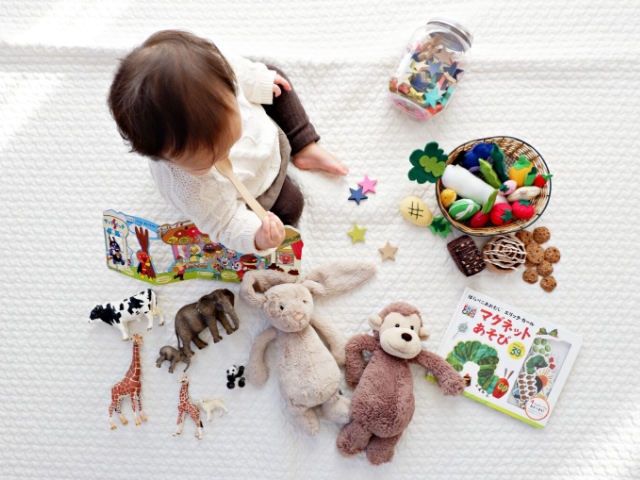Taking your child to his regular checkup ensures they are on track with their early developmental milestones. Some physicians have training in various areas of early development, and some do not. Use the information below and the questions provided to get the information you need from your doctor as your child grows.
The following includes a few general areas of early childhood development to be aware of.
Social-Emotional Learning
Social-emotional learning (SEL) refers to a child’s emotional well-being and interactions with others and how he responds to or deals with a variety of social situations. For infants and young children, crying to communicate needs, smiling, and playing alongside or with other children are examples of skills they exhibit in this domain.
Speech and Language Development
Speech and Language development covers both receptive communication (what a child understands when others speak) and expressive communication skills (what and how a child can effectively communicate effectively to others through speech).
Cognitive/General Knowledge
This area of child development includes skills like moving a barrier to finding a hidden object, counting objects, naming pictures, and matching colors.
Gross Motor Development
Gross motor development deals with how well an infant or child can manipulate the large muscles of her body. Crawling, walking, jumping, and throwing a ball are all gross motor/large muscle skills.
Fine Motor Development
Fine motor development refers to the use of small muscles. Holding small bits of food in their fingers, marking with a crayon, and demonstrating hand-eye coordination are examples of fine motor skills.
Self-Help Skills
Early development self-help skills include feeding, expressing needs through verbal or non-verbal communication, and overcoming obstacles to solve problems. When a child climbs on a step stool or large book to reach something, he demonstrates a self-help skill.
Questions for your Pediatrician About Early Development
If you’re concerned about whether or not your child is demonstrating skills in the above areas, your doctor may be the first person to go to. Here are a few questions to ask your child’s pediatrician about development:
- What training have you had in infant and early child development?
- What are some red flags I should watch for as I watch my child master or struggle to master various skills?
- Do you have patients who have disabilities, requiring them to receive Early Intervention services? Do you have the contact information for those in charge of providing such services to children and families?
- There are various tasks children are asked to demonstrate at regular appointments. What do these tasks tell you about my child?
- How can I help my infant/toddler/preschooler with developmental skills they may miss or struggle to master?
- What developmental milestones are you most concerned about as my child enters school?
- What causes developmental delays?
- How are developmental delays diagnosed?
- How are developmental delays treated?
- What is the prognosis for developmental delays?
It is important to remember that every child may or may not demonstrate all the skills in every domain. Sometimes this might mean there is a problem, and sometimes it does not. Be sure to bring your concerns and questions to your child’s doctor and someone trained in assessing childhood development.



